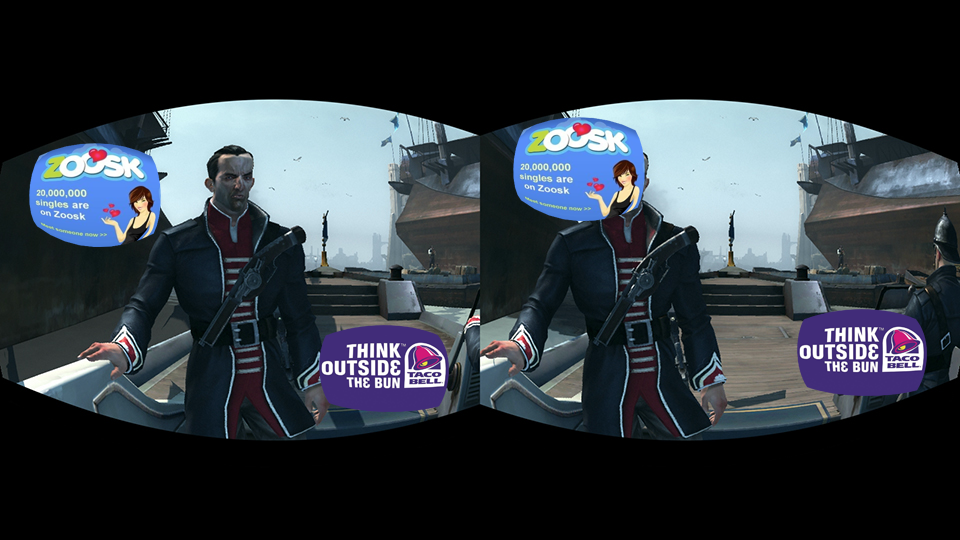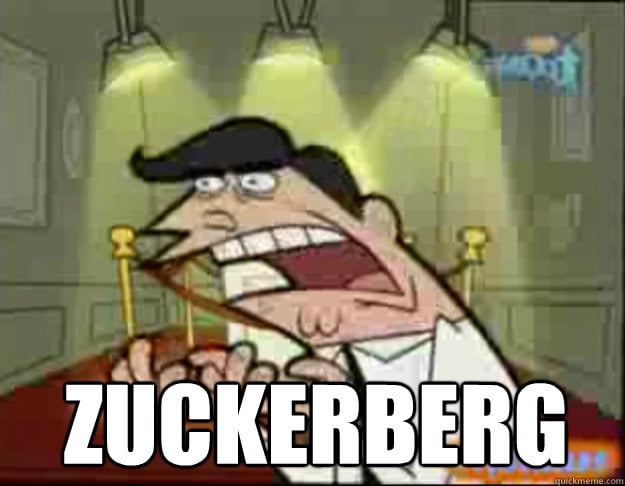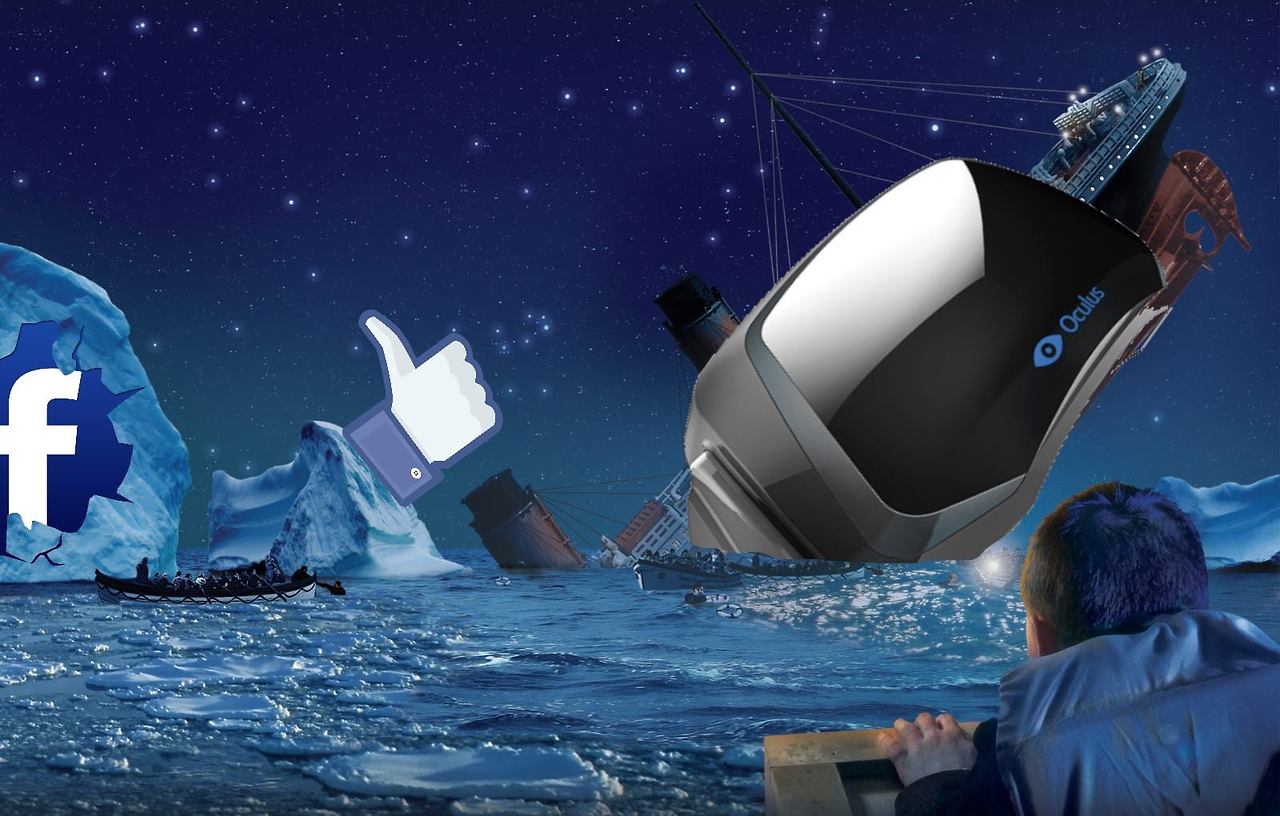
With the recent announcement of Facebook's acquisition of the Oculus VR, internet communities have been up in flames with the decision. Although it has been quoted that the purchase of Oculus will not affect the actual product, simply provide a financial benefactor, many believe there is obviously something very sinister lurking behind the shadows.
Here is a roundup of the most common completely ridiculous speculations and theories about the actual incentives for this controversial buy out.

#1 Provide an ungodly amount of advertisements for gamers to trudge through.
Gamers have to deal with ad invasion whenever hopping onto the likes of Farmville or Happy Aquarium on Facebook. If you thought the numerous promotions for Mountain Dew were atrocious on the site, wait until your knee deep into the new Batman Arkham game and all of a sudden, you are bombarded with interactive texts about P90X and Activia. Maybe these ads will be somewhat discreet at launch, however, as the product gains momentum, so will its rampant articles of weight loss supplements interrupting your gameplay experience.

#2 Our private information once again being at risk, on a much larger scale.
One vital gripe from social networks is all your info put on has the potential to becoming leaked out for advertisement companies and, at worst, details could provide material for identity thieves. There is no doubt that the future Oculus Rift will have its own network of games and overall entertainment options, which will inevitably ask you for credit cards and email addresses in order to interact with the ecosystem, as the Xbox Marketplace and PSN currently do. Facebook, being already experienced in the management of all our info for over a decade now, could easily gleen more facts about us users and even sell the information towards our spying overlord agencies supposedly monitoring our every move on this new platform.

#3 Mark Zuckerberg having an early mid-life crisis.
Everyone knows Mark Zuckerberg (founder of Facebook, coding god) is an extraordinary visionary that has the ability to create a multi-billion empire out of his dorm room in Harvard (you saw Social Network right?) Unfortunately, the movie and his escapades on Facebook show that he is an analytic driver with goals so ambitious that he has betrayed some of his more human side (friends, colleagues) in favor of his machine-like working attributes.
Maybe after so many years of relentless coding and being extremely overworked has finally made him crack. He could possibly be diving into a completely new field such as virtual reality as some form of an early mid-life crisis, a sort variation on the mental instability that leads old guys to purchase expensive cars. His unfamiliarity with the new product may lead to his downfall however, as the venture into Oculus may prove unfruitful and possibly destructive to both the respective companies, as well as millions of heartbroken VR fans.

#4 Orchestrating the complete destruction of VR.
What if the merger of Oculus is actually the first step in Facebook's grand plan to eradicate the virtual reality genre before it begins? With social networking being as popular as its ever been, especially in the form of apps on gaming platforms, perhaps Facebook is just looking out for its prestigious brand to remain successful on consoles, and not be disrupted by any future products that might differentiate from that path.
We'll inevitably see the Oculus Rift in action and how much of a role Facebook really played, but for now we can only ponder at why this strange transaction went down. What do you think prompted the buyout?






Published: Mar 27, 2014 06:32 pm